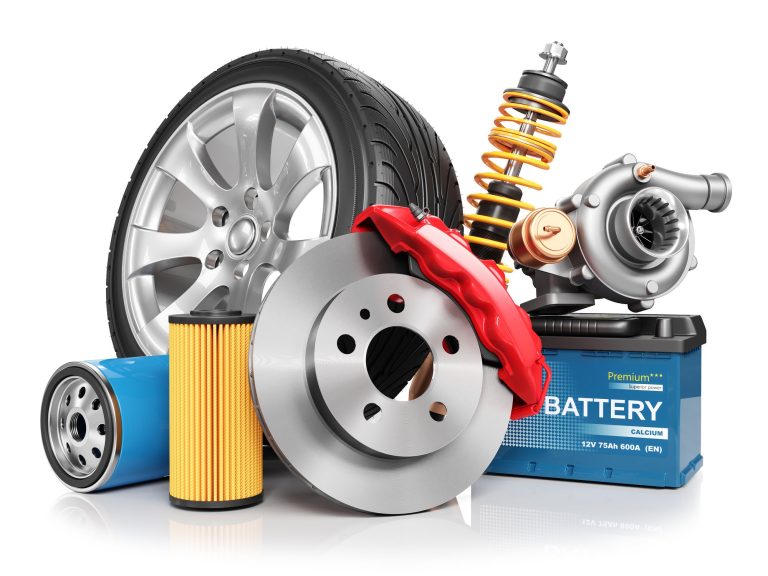Don’t get abandoned on the side of the road on your holiday trip – or, worse still, have your plans ruined by a failed part as simple, yet essential as a wheel bearing, when you discover it is actually a counterfeit part.
The warning comes hot on the heels of global bearing manufacturer, SKF, breaking the news of a big raid in Cape Town this month on a very well-known reseller of SKF bearings. The Reseller had been selling counterfeit SKF bearings to numerous customers in the region. Thanks to the efforts and investigations leading to the raid, SKF managed to seize over 15 bags filled with counterfeit SKF product of various types and sizes.
TEPA (Tyres, Equipment, Parts Association) Vice Chairperson, Les Richardson, reiterates the importance of regular car maintenance and, particularly, of being sure the parts on your car are genuine or of equivalent matching quality from a reputable brand supplier. TEPA is a proud affiliate of the Retail Motor Industry Organisation (RMI).
“When it comes to fake bearings – in fact, any car part – the initial cost may have been cheaper and an ‘excellent deal’, but in reality the overall cost is likely to be considerably more.
“You may end up with much bigger problems than having to replace the bearing. Counterfeit parts can result in major damage to other components or an accident resulting in injury or worse,” Richardson says.
These counterfeit bearings are also not just a South African problem – there is a worldwide epidemic, affecting an estimated 10 to 15 percent of bearings supplied worldwide. South Africa has recently become a hot spot for this activity as the weakening economic situation has resulted in counterfeits becoming more attractive to opportunistic distributors and traders.
If you are wondering why they are so important, Richardson explains that bearings are extremely hard round spheres of metal that are generally compressed between two counter rotating surfaces that allow the two pieces to move relatively freely from each other.
“If we think of our cars, bearings are found in many components, but the ones that first come to mind are attached to the axle or wheel hub so as to allow the wheel to rotate freely around this point. Obviously the less the friction, the more easily the wheel can rotate with the minimum noise and resistance. These bearings are found in all vehicles that require near frictionless rotation of one surface from another.”
Richardson says you should never wait until you hear an unfamiliar noise coming from your vehicle to have it checked out.
And this is why – if the bearings are faulty, this usually manifests as a vibration or noise that steadily worsens. The fault will cause excess heat to build up until eventually the part fails by seizing completely, or disintegrating. At this point your wheel could dislodge from the car, or maybe the heat causes the brake fluid to boil, which produces bubbles and this in turn causes your brake system to fail. Generally the motorist becomes aware of the problem before it gets to this stage, but we often encounter a trailer on the side of the road where this has happened.
“Not a pretty picture at all. This is why it is so important to ensure your vehicle is regularly serviced and maintained at a reputable and accredited TEPA fitment centre. Wheel bearings can be checked at any time that your car is up on a lift for an oil change, tyre rotation or replacement, wheel alignment or even exhaust work. Ask for it to be done rather than accepting that this has been done.
“If you hear a whirring sound or a vibration or, worse still, feel the wheel hub is very hot, you need to get this checked out urgently.
“Our advice is to take your car to the nearest TEPA fitment centre for a safety check before hitting the road on holiday, regardless of the distance you plan to travel. If the wheel bearings are worn, don’t compromise on the quality of the replacement parts. And, remember the family trailer too – when last has it undergone a safety check?
“The fitment centre will examine a comprehensive list of safety components, like your tyres, brakes, shock absorbers, windscreen wipers and lights, for example. Get this done before your next long journey so that you can set off with peace of mind and one less thing to worry about.
The golden rule when purchasing your bearings is to be aware that if the lead time and price from one supplier is far better than what your other reputable suppliers have quoted or what you have paid in the past for the same brand, then you need to proceed with caution.
“Wheel bearings are small parts but they are built to exacting standards and essential specifications of lubricants etc., designed to perform their very important job. Anyone supplying or buying counterfeit parts or compromising standards puts our lives and those around us in unnecessary danger,” Richardson says.
“It is important to educate yourself about counterfeit car parts, like wheel bearings, to avoid falling victim to fraudsters supplying these under the guise of them being genuine. It is almost impossible to distinguish counterfeit bearings from the real thing so rather speak to the experts at an accredited fitment centre if you are in doubt or want more useful safety tips regarding wheel bearings and what to look out for,” Richardson concludes.



